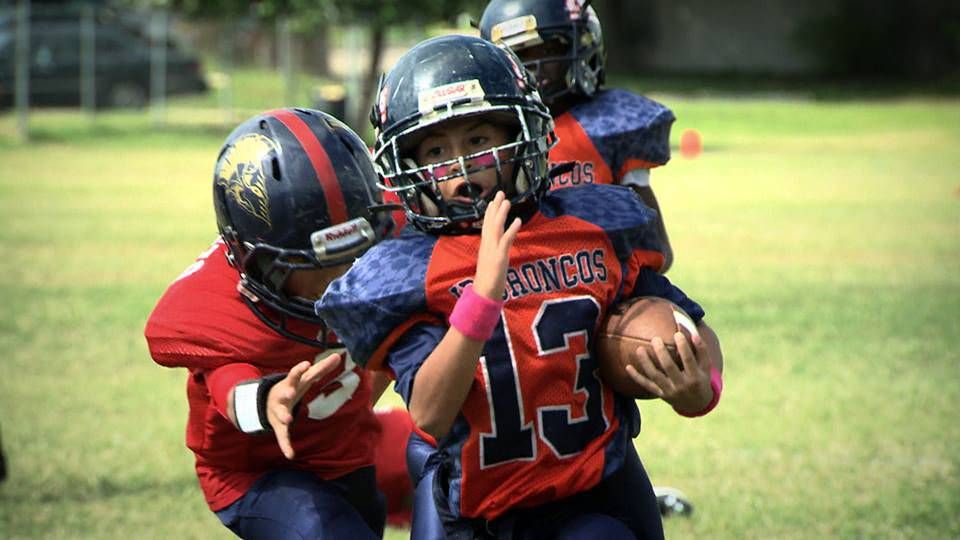
Friday Night Tykes
“You have the opportunity today to rip their freakin’ head off and let them bleed.”
That statement was not uttered by a power-hungry king to his warriors on the latest episode of Game of Thrones; nor was it the tactic of a character fighting zombies on The Walking Dead.
That exact quote is what a coach said to his team of 8- and 9-year-old football players, captured on tape for Esquire Network’s Friday Night Tykes.
Friday Night Tykes, currently in its second season, is a reality show following a handful of football teams in the Texas Youth Football & Cheer Association, which some consider to be the most competitive youth football program in the U.S.
Season two’s premiere, “Welcome to the Juniors,” brings viewers up to speed on many of the changes implemented in the league since the first season ended. Two coaches have been suspended — one after he encouraged his players to use illegal and dangerous plays and the other after he allowed his players to scream expletives in team chants.
Spend any time in this tiny football world, and one thing becomes incredibly clear: Many grown men who coach youth sports have embarrassingly fragile egos. Not only that, the number of female coaches is pretty dismal. And that, sadly, makes sense, considering that in season one, a man gets mad at a small boy, who obviously is in some sort of pain, and tells him that “emotions is [sic] a female trait.”
This male-dominated league of football, dirt and dirty footballs leads me to believe that I was in for an aggravating first episode. But then came Zoe Robinson.
The 11-year-old girl, whose doctor recently diagnosed her with obesity, decides to join the youth football league to lose weight and adopt a healthier lifestyle.
Although one would think that a team of preteen boys wouldn’t be the kindest souls to a larger girl, Zoe’s teammates treat her incredibly well. At one point, when Zoe can’t finish running laps around the field, the entire team follows her, providing encouragement along the way. (I would like to think that this situation would have gone exactly the same way had there not been a camera crew around, but who’s to say?)
Regardless, the way the team treats her compared to the way Zoe’s mom and the football staff regard her is a stark contrast. Her mom is seen at many points harshly chastising her for not doing well enough, even though Zoe is new to playing the sport. At one point, a man on the field checking to verify the identities of the players comments loud enough for Zoe to clearly hear: “I looked at her and I thought it was the team mom.”
Unfortunately, this isn’t the only time the children on the show are treated poorly by the adults around them. For every heartwarming moment wherein a coach or parent congratulates the children on a job well done, there is a complete opposite situation in which their guardians yell at kids for reasons that seemed fairly unimportant.
Televised images of adults screaming at children certainly aren’t exclusive to Friday Night Tykes. Lifetime’s Dance Moms, which is in its fifth season, also heavily relies on the shock factor of little kids being chastised by the harsh adults (arguably) teaching and raising them.
Shows such as these present a variety of questions. Is it wrong to broadcast children’s emotional breakdowns and scoldings when they’re too young to decide whether they even wanted to be part of the show? If shows such as these are doing so well, what does this say about viewers?
Overall, Friday Night Tykes isn’t completely aggravating. Watching the players be berated by their elders isn’t exactly enjoyable, but the show does at least try to showcase some perks of youth sports, such as team bonding and exercise.
It is certainly enjoyable to watch incredibly talented children do what they love. However, as Friday Night Tykes reiterates, it seems that — on TV, at least — behind every talented kid is an overbearing adult, waiting on the sidelines or in the audience with some words of praise for their child. And even more criticism.



